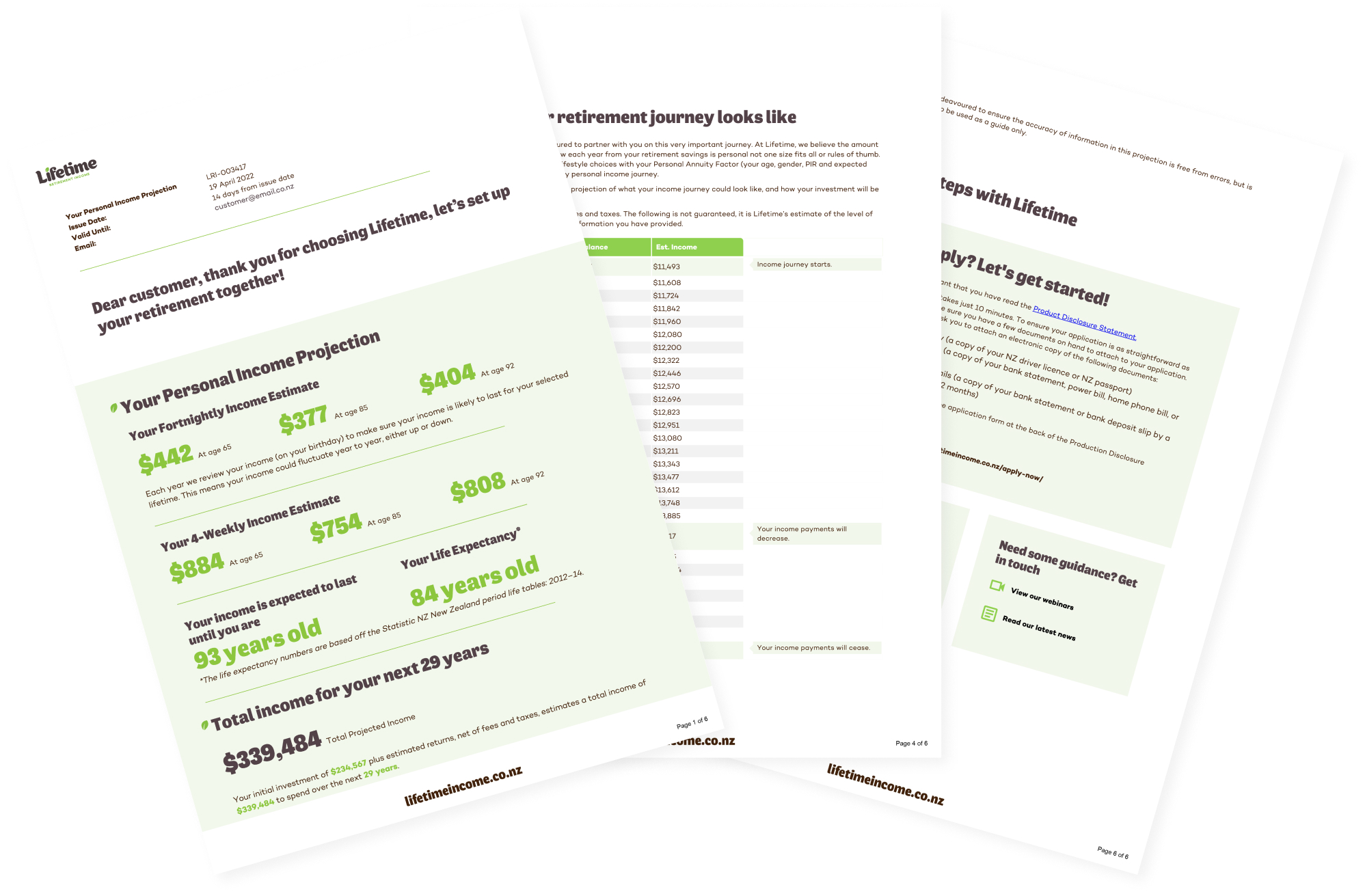Retirement Life
13 December 2022
Christmas conversations
‘Tis the season when all the kids come home.
Many readers will have experienced this firsthand: as the children grow older, they move off, split up and often enough disperse (sometimes far away). They usually keep in touch, but although you may see them individually often enough, there become fewer and fewer times when the whole lot are together.
Christmas and the holiday season may be one of those times – when there is an assembly of the clan. I think this is an opportunity.
A get-together is a chance to discuss some of your plans – a chance to get some input from them and make sure they understand what you are doing and why you are doing it. The plans that I am thinking of are financial ones. At some point, the children should know about your finances.
The three main areas that should be discussed are:
Project your fortnightly, tax-paid, retirement income

Your wills
My main aim in this area would be to achieve buy-in from all the children and to ensure that there are no unpleasant surprises that could lead to arguments after you are gone. People have expectations, and if those expectations are not met, there can be trouble. There are large numbers of successors (mostly grown-up children) who do not know the contents of their parents’ wills. I am sure a discussion will make it easier for them if there is anything in the will that is beyond simply equal sharing (e.g. donations to charity, gifts to grandchildren, assets remaining in trust for future generations).
Children may, of course, comment about a will (or your plans for a new one) and those comments may be helpful (e.g. one of the children may be happier if a part of their share goes to their children rather than themselves). I do think it is better to have a discussion with everyone present who may have an interest, so that there are no surprises after you have gone.
I know that children often do not like to hear their parents talk about their demises (I certainly did not). However, this is something that really cannot be escaped, and I do think a good discussion with full disclosure is better at a time when you can give the reasons for anything which could be a surprise.

Family trust arrangements
Many people in this country have formed family trusts. If this is you, I think a conversation with all the children becomes even more critical because family trusts are discretionary. This means that after you die, the new trustees have complete discretion as to which of the beneficiaries will benefit from the trust, and by how much. Provided they follow a few basic rules, the trustees who are appointed after you are gone hold this discretion and can distribute assets as they wish under the trust.
This means that you should appoint very good replacement trustees (trust is the name of the game!). It would help if you also wrote a Memorandum of Wishes to give guidance to trustees as to what you want to happen to trust assets. If possible, this document should be informed by family agreement following open discussion. While not binding, the Memorandum of Wishes is most likely to be followed if there has been discussion and consensus within the family.
Moreover, you may take the opportunity to reconsider whether you need to continue the trust. With the advent of the Trusts Act in 2021 and its increased emphasis on trust management, you may find the trust is no longer necessary. If that is so, you could discuss this with the children when you get them together.
Take control of your retirement income

Retirement income
Many people reading this will have investments, and they will be drawing on their savings to supplement NZ Super. I think it reasonable to talk about this with the children. They may need to know what has been happening with your investment capital at some stage in the future. Perhaps most importantly, they should know if you are drawing on capital as well as investment returns, i.e. whether you are running down capital or not. Such a conversation may avoid another surprise, and the children probably need to know whether your investments will last as long as you do. This will also alert them to the fact that you may need some help later on or whether or not you may be able to help children or grandchildren. More likely, they will see that your income is giving enough for you to live comfortably; something that should relieve them of worry.
This is just the barest outline of the kinds of things that might need to be discussed. Given the circumstances, it would rarely need to be a formal meeting, but I do believe that grown-up children should understand their parents’ finances – and that open and honest communications can be invaluable.
Invest with Lifetime for a retirement income managed for living.
